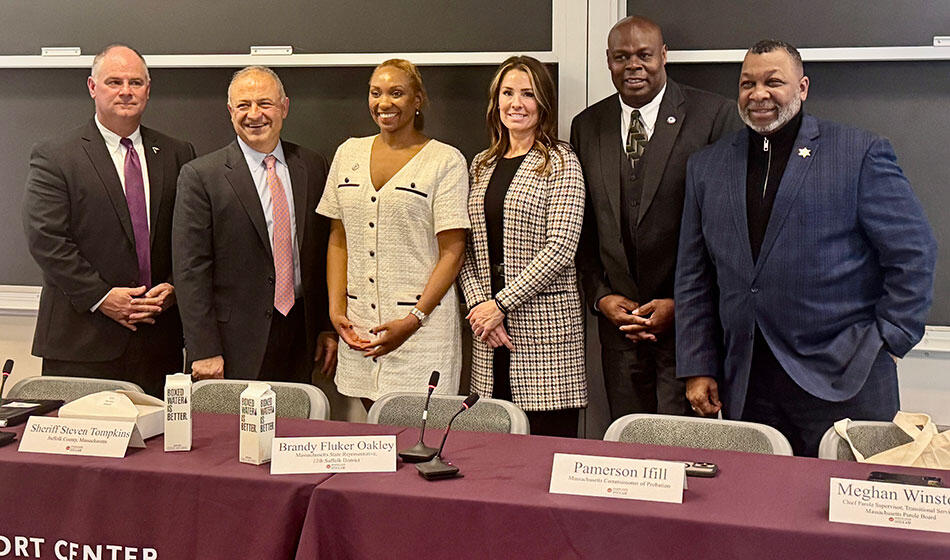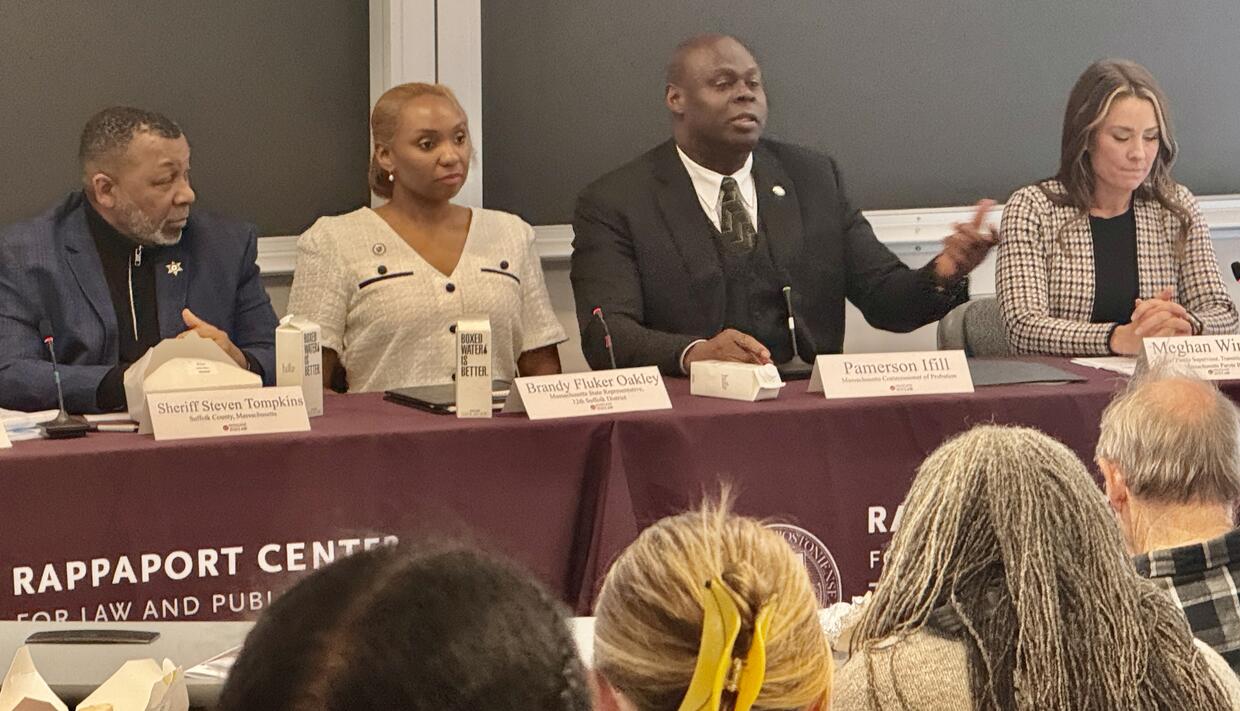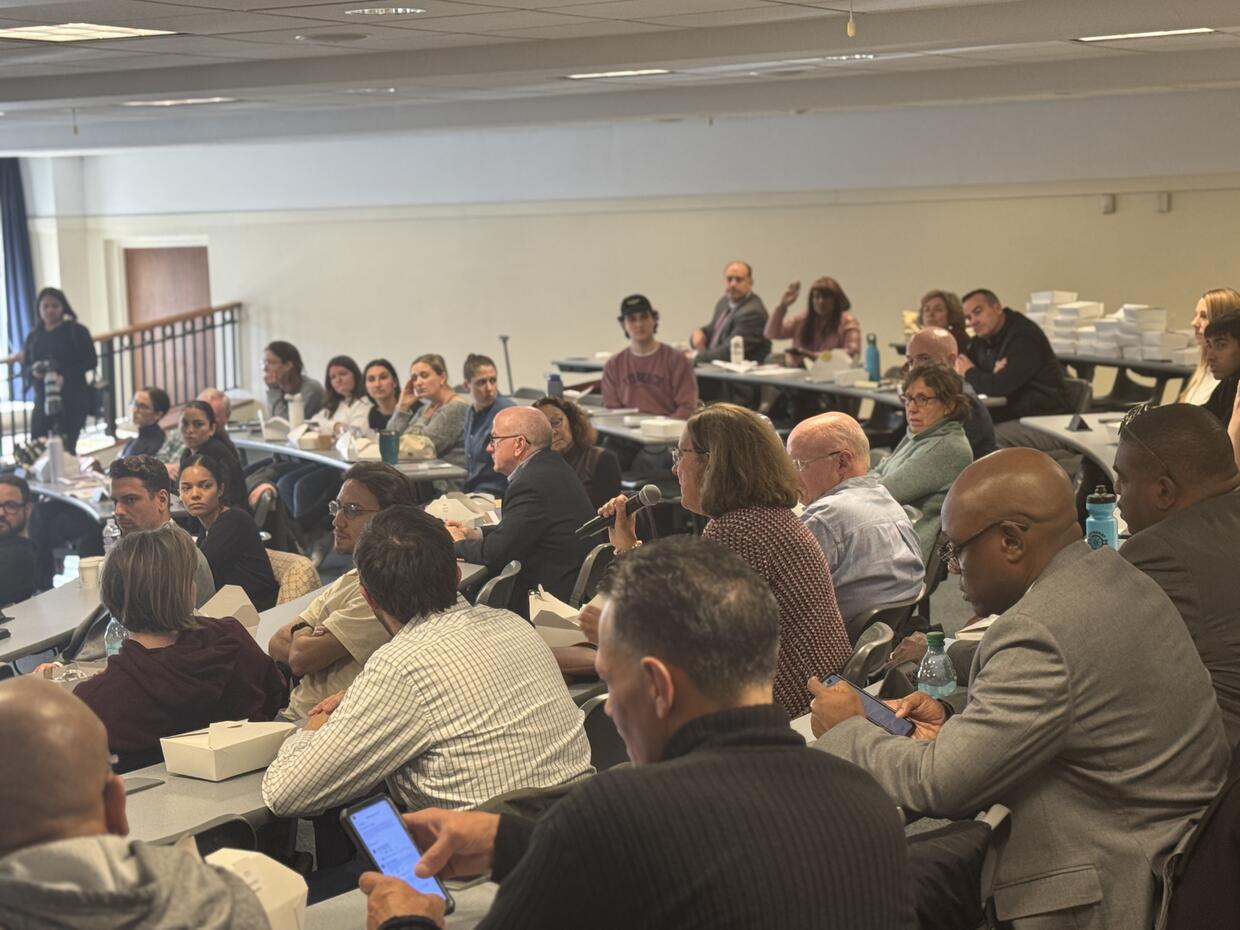- Massachusetts Probation Service
Media Contact
Coria Holland, Communications Director

Above left to right: Andrew Peck, Undersecretary, Executive Office of Public Safety; Anthony Benedetti, panel moderator and Chief Counsel, Committee for Public Counsel Services; Brandy Fluker Oakley, Suffolk District-12 State Representative; Meghan Winston, Chief Parole Supervisor, Transitional Services, Massachusetts Parole Board; Pamerson Ifill, Massachusetts Commissioner of Probation; and Steven Tompkins, Suffolk County Sheriff.
Probation Commissioner Pamerson Ifill was one of six panelists at a Reentry Symposium held at Boston College Law School’s Rappaport Center for Law and Public Policy on Friday.
The panel focused on Government Resources and Initiatives. Commissioner Ifill described the Massachusetts Probation Service as customer service-oriented and in the “second chance business” and shared how this approach has been successful.
The Commissioner informed the audience of the 44 percent reduction in probation violations among probationers and shared that Probation sends fewer people to jail and has the lowest rearrest rate in the nation. The audience included law students, community organization representatives, returning citizens, and government leaders.
In addition to the Commissioner, the other panelists included State Representative of the 12th Suffolk District Brandy Fluker-Oakley; Suffolk County Sheriff Steven Thompson; Undersecretary of the Executive Office of Public Safety and Security Andrew Peck; and Chief Parole Supervisor Meghan Winston. The panel was moderated by Anthony Benedetti of the Committee for Public Counsel Services (CPCS).
Commissioner Ifill spoke about the sober and transitional housing Probation provides for 500-600 clients each month. Massachusetts Probation Service employees, trained as certified application counselors, enroll probationers and justice-involved individuals in MassHealth and Health Connector insurance. In many courts, more than half of the probationers are uninsured, according to Commissioner Ifill.
Probation has also reduced the number of standard probation conditions from 22 to 16 which “gives clients less reasons to violate,” Commissioner Ifill said. He also spoke about Probation’s efforts to hire individuals with backgrounds in treatment, education, and behavioral health. Previously, many Probation employees had a law enforcement background.
When the panelists were asked by moderator Benedetti to describe their “measures of success,” Commissioner Ifill said it is when Probation is able “to intervene at the Juvenile Court level and work with children and their families” and help change their trajectory.
He also spoke about Probation's community engagement efforts and how these activities—which include such activities as community resource fairs, a baby shower and housewarming for teen moms, recovery cookouts, and food, clothing, and supply drives, and more—have positively impacted interactions between probation and clients as well as their families, and the community. Probation employees have hosted more than 100 events at courthouses throughout the state.
“This isn’t your grandparents’ Trial Court,” Commissioner Ifill said.
Commissioner Ifill discussed the agency’s equity and inclusion efforts, including providing a training on identifying and addressing issues of ethnic disparities.
“We intentionally looked at how we address racial disparities. It is fundamentally important when people walk into courthouses and probation offices and see people who speak their language and look like them,” said Commissioner Ifill.


